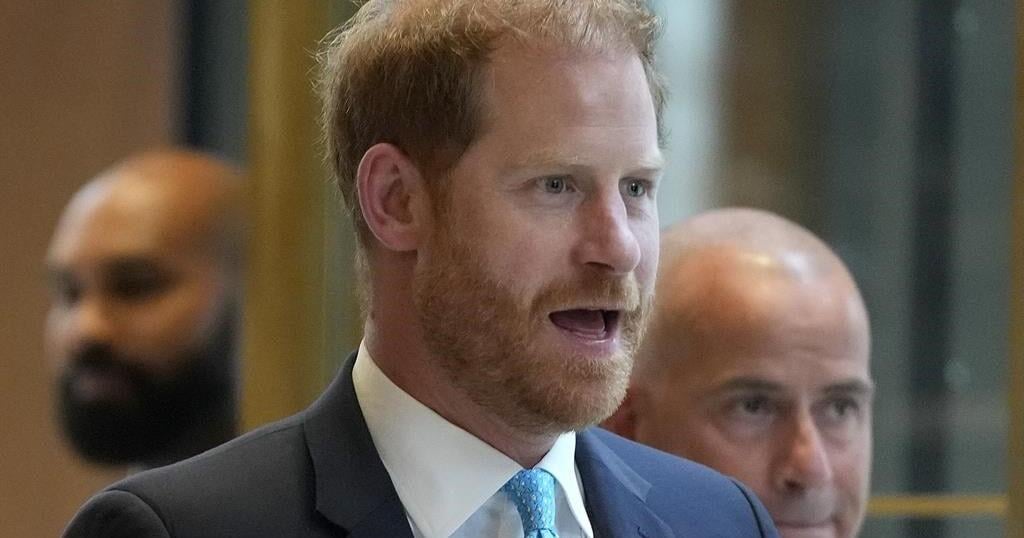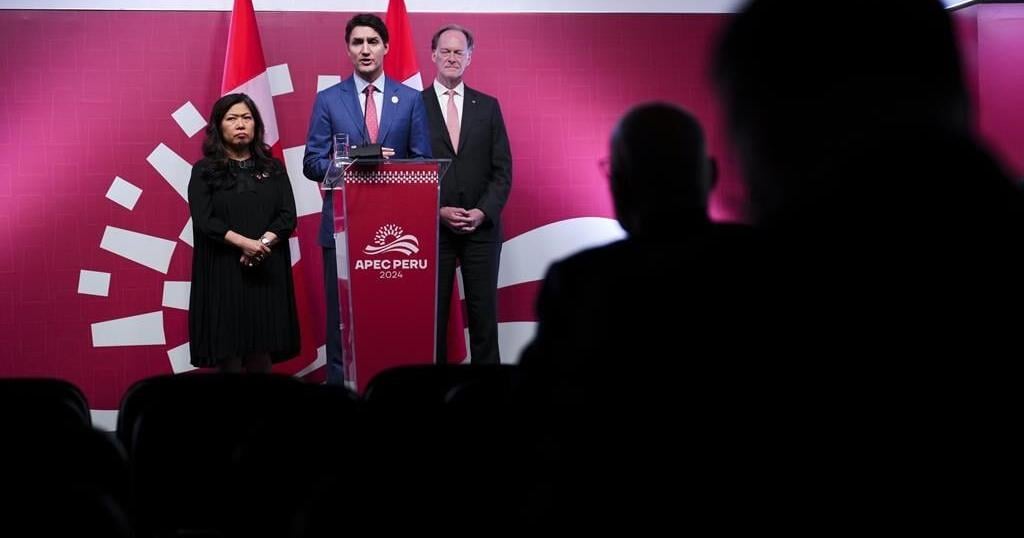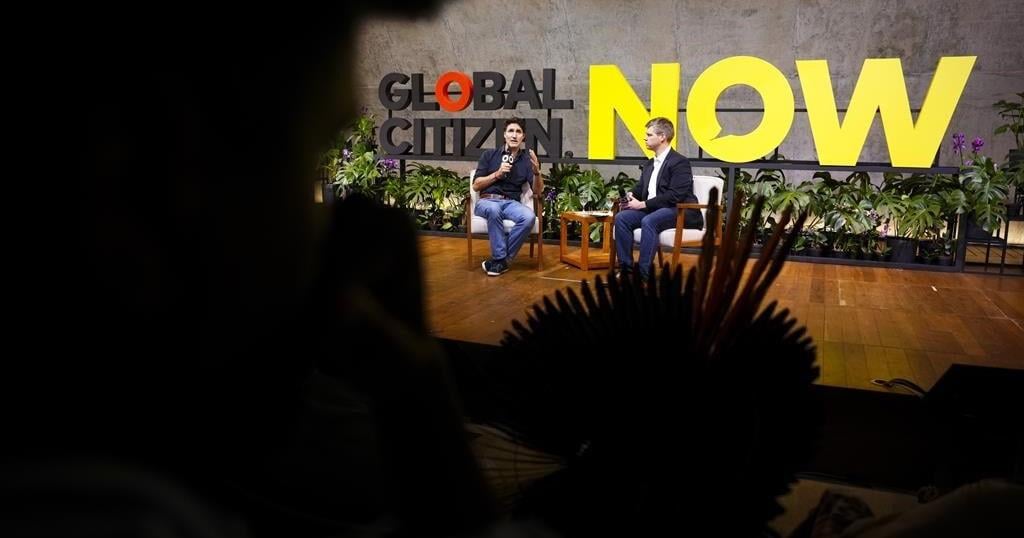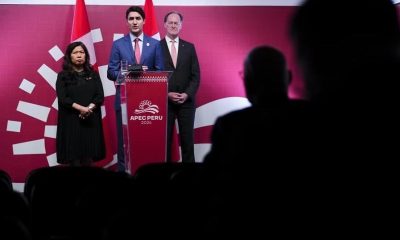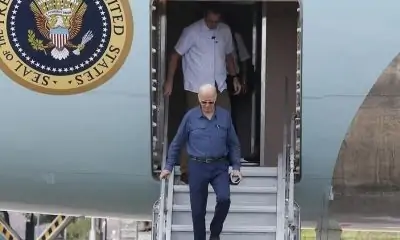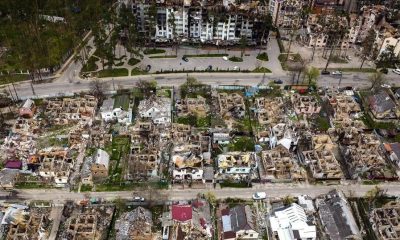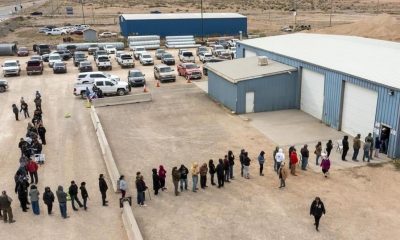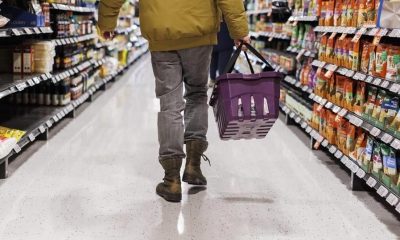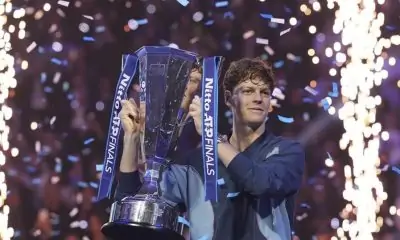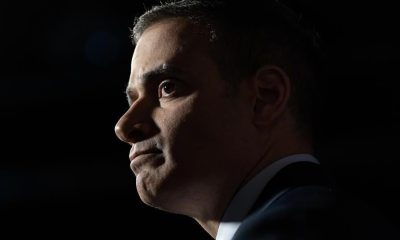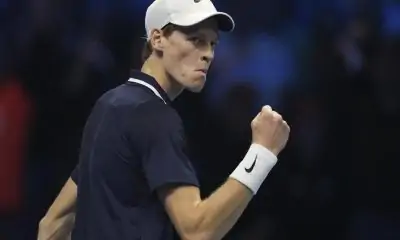RIO DE JANEIRO – Prime Minister Justin Trudeau will meet with U.S. President Joe Biden in Brazil at the G20 summit, as Ottawa seeks its place amid a growing rift between Washington and booming economies in the developing world.
The Group of 20 is an intergovernmental forum with leaders ranging from long-standing allies such as French President Emmanuel Macron to populist firebrands like Argentine President Javier Milei.
They’re meeting in Rio de Janeiro to try to find common ground on issues ranging from solving global hunger to setting rules around digital currencies.
The summit comes less than two weeks after American voters decided to send Donald Trump back to the White House next year. During the campaign, Trump promised to pull the U.S. out of global institutions and raise tariffs on foreign goods.
John Kirton, head of the G20 Research Group, says the forum is the main tool countries have to prepare for the second Trump presidency.
“What you really need is basically the most powerful leaders, of the world’s most powerful countries, talking among themselves — because only they know what it’s like to deal with a leader in the same category,” he said.
Much of Trudeau’s time at the summit will likely involve informal chats with various leaders, though he is scheduled Monday to have formal meetings with Biden, Japanese Prime Minister Shigeru Ishiba and Mexican President Claudia Sheinbaum.
Trudeau’s meeting with Sheinbaum will come ahead of both countries facing a 2026 review of the Canada-U.S.-Mexico Agreement.
“There are concerns around the level of Chinese investment in Mexico that I think need to be addressed, but I am hopeful that we’re going to be able to work constructively over the coming months,” Trudeau said at a Saturday news conference in Lima, adding that Mexico has been a “solid partner” to Canada.
Trudeau will likely meet with the summit host, Brazilian President Luiz Inácio Lula da Silva, commonly called Lula.
Kirton said Trudeau is in lockstep with Lula’s three main priorities for the summit, which are economic equality that includes Indigenous Peoples, climate change and clean energy, and reducing poverty and hunger.
Lula has added a fourth priority, artificial intelligence — something Trudeau championed when Canada hosted the G7 summit in 2018, and that Trudeau says will be a key focus in Canada’s term as G7 host next year.
“It’s hard to think of a G20 summit where the host’s and the Canadian prime minister’s priorities had been so well aligned,” Kirton said. “We’ve got a lot we can do to help Lula get what he wants.”
Another point of alignment is on Lula’s desire for global governance reform, something Ottawa has pushed for among the G7 and at the United Nations.
Countries like Brazil say they don’t have an adequate voice in institutions that were designed at the end of the Second World War, when Europe and Washington had a dominant role in shaping the rules governing military matters, trade and sovereignty.
Countries in regions like the Caribbean have the same grievances about financial institutions designed over the decades. They complain that they cannot get adequate financing to invest in infrastructure to blunt the impacts of climate change that is largely being caused by industrialized countries.
Instead, they are paying massive interest charges at a time of high inflation. In July 2023, a UN report found nearly half the world’s population lived in countries that spend more on debt interest payments than on education or health care.
Brazil prides itself on being a democracy anchored in what it calls a pragmatic approach to diplomacy, though both have been under strain.
Lula has made climate change one of his primary focuses. Brazil has seen large-scale urban floods and record forest fires in crucial areas like the Amazon, where there has been conflict over natural resources projects.
Neighbouring Venezuela’s dictatorship has meted out economic pain and state violence on its people, sending waves of refugees to Brazil.
In early 2023, Brazil was stunned as supporters of Lula’s predecessor Jair Bolsonaro stormed the country’s presidential palace, parliament and Supreme Court in what many likened to the events of Jan. 6, 2021, in Washington.
Since then, Brazil has sought to weed out misinformation, blocking access to the platform X for five weeks when the company refused to comply with court orders.
Meanwhile, the country is a member of the BRICS club of emerging economies that have been seeking more influence in the world for countries like China and South Africa, and an end to American dominance in fields like reserve currency.
Vina Nadjibulla, research vice-president for the Asia Pacific Foundation, urged Canadians “to not mistakenly lump Brazil into the … anti-West bloc that Russia, China, Iran and others within the BRICS represent.”
She said Ottawa should instead focus on shared priorities with Brazil such as free trade, democracy and respecting global rules — including moves to make those rules work better for countries where most of the world’s population live.
“It’s important as we enter this much more volatile, unpredictable period in international relations to maintain nuanced, smart approaches and policies to emerging and middle powers like Brazil,” she said.
Nadjibulla said it can be challenging to hit the right balance, but she said to not do so would drive partners like Brazil into the arms of disruptive powers like Russia and China, and foster more anti-Western sentiment.
“We need to be much more forthcoming in making those global institutions fit for purpose,” she said.
“That’s going to be really challenging with the next Trump administration, which has a very limited commitment to multilateralism and global institutions, and has a lot more isolationist tendencies.”
Similar to the past two G20 summits, Russian Foreign Minister Sergei Lavrov is in Rio for Russian President Vladimir Putin, who since March 2023 has been the subject of an arrest order from the International Criminal Court for his role in the deportation of Ukrainian children.
After Trudeau’s arrival Sunday in Rio de Janeiro, he addressed a conference held by the anti-poverty group Global Citizen on the sidelines of the G20 summit. Attendees came from around the world, and included Indigenous people from Amazon regions who wore traditional outfits.
The prime minister encouraged youth to not lose faith in fighting climate change, and defended his government’s embattled carbon-pricing policy.
This report by The Canadian Press was first published Nov. 17, 2024.


